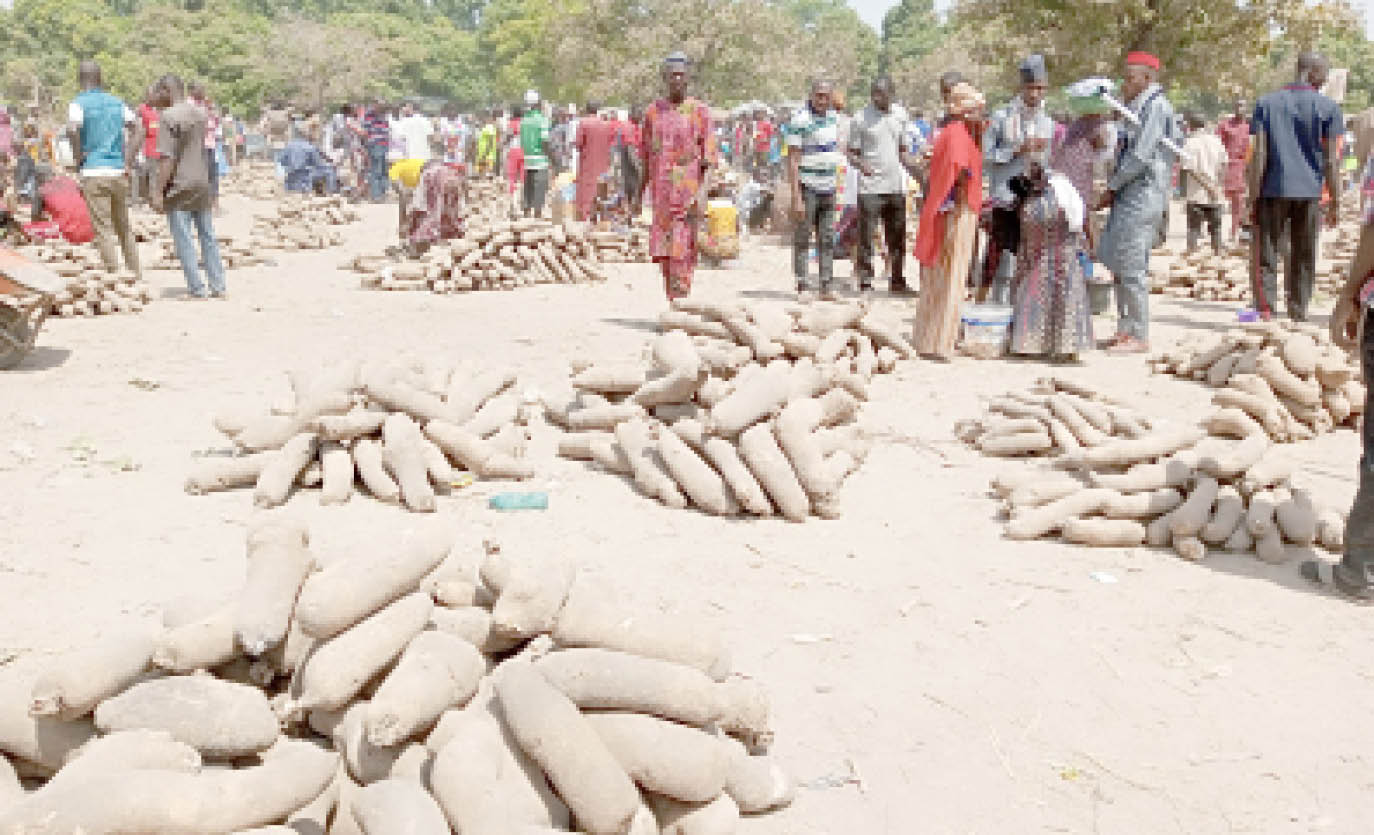As the rainy season progresses, some farmers displaced from Shiroro Local Government Area of Niger State have reportedly resorted to negotiation with terrorists to enable them to return home to plant yam and other crops.
Daily Trust gathered that while the terrorists have consented to the appeal, especially in Chukuba and adjoining villages, the farmers are still gripped with fear due to their experience in previous years when the terrorists allowed them to plant but did not let them harvest due to attacks.
- Corps member donates 10-month allowance as scholarship to student
- Niger North Senate seat pits Sabi against Gov Bello
A farmer from Chukuba said, “Farmers in the Chukuba axis have started going back home after the terrorists agreed that we go and plant our crops. Our fear is the experience we had last year. In the last rainy season, they agreed for us to plant our crops, but during the dry season, they didn’t allow us to harvest. Our yam and other crops wasted on our farms. We are just taking a similar risk to see if it works.”
But farmers in Kuchi, Injita, Chibani, Zazzaga and other communities in Munya LGA said they were yet to get full access to their farms to plant this season as their villages continue to witness attacks daily.
Mohammad Awwal, an IDP from Kuchi, said each time they returned home to plant yam and other crops they got attacked and abducted, explaining that, “We have not planted yam and the rainy season is progressing. The best time to plant yam is when rain starts. We are supposed to have finished planting.
“The terrorists now live in our communities. Our brothers who visited recently said they have left our yam barns open with goats that we left behind eating up yam seedlings.”
Another farmer, Shehu Abubakar, said, “Only a few men do take the risk of going to plant one crop or the other. And they do it with fear. We don’t go to farm now with our children and women as we used to out of fear of possible attack. Before, women and children would go to the farm to assist their husbands and fathers in planting while he made ridges. Now, how many hectares will a man cultivate alone? So, no serious farming is ongoing. In fact, close to 90 per cent of villages in Munya are empty. Nobody lives there now. So, you can’t talk of any serious farming in Munya.”
A farmer in Gwada, Shiroro LGA, said most of the farmlands in security affected parts of Shiroro and Munya LGAs could not be cultivated as no one was ready to risk their life in the name of farming.
With the ongoing terrorist onslaught on Munya and Shiroro where farmers have been subjected to torture, the farmers have predicted scarcity of yam and general food insecurity in the coming years unless the government takes severe actions against the terrorists to allow them to return fully to their farms.
Meanwhile, the Secretary, Yam Dealers Association (YDA) at the Paiko Central Yam Market, Abubakar Hussaini, said, “Right now, some farmers are planting yam. Even those who could not plant last year have started planting this year. Though most of them go to farm to plant in fear. What farmers do now is that if they go to the farm, they put two or three persons as guards. Their duty is to be on the watch out so that if they sight the terrorists, they can alert their colleagues to run.
“This year, farmers have more access to their farms than the previous years because the security situation has improved.”
He further said the security challenges had caused the price of yam seedlings to rise as many farmers could not harvest their yam the previous year, while some did not even plant.
Hussaini added that, “Farmers from Munya and Shiroro are now coming to buy seedlings from us. The seedlings that were sold at N10,000 last year now cost N40,000 because of high demand from farmers who could not plant or harvest their yams last season.
“Many farmers would not be able to cultivate more than a hectare with this high cost. To cultivate many hectares requires huge capital. 100 seedlings cost about N20,000, and one hectare takes about 3,000 seedlings. You see how much it will cost you. Last two years some farmers cultivated over 10 hectares but they couldn’t harvest them.”
He, therefore, called on the government to take severe measures in addressing the security challenges to enable farmers in the affected communities to return home to face their means of livelihood, noting that life had become difficult as most of the victims had no other sources of survival.

 Join Daily Trust WhatsApp Community For Quick Access To News and Happenings Around You.
Join Daily Trust WhatsApp Community For Quick Access To News and Happenings Around You.


